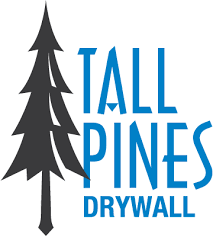One of the most frequent questions surrounding the drywall industry is about soundproofing. More often than not, the inquires are not just for home theatres and music studios. With more and more people working from home there has been a greater need for home offices to be soundproofed - there is only so much you can get done with the kids and family dog running wild upstairs.
Read MoreHave you ever wondered what all the words we use in the drywall industry mean? Here are some common terms and phrases we often use to help you understand us better.
Read MoreAbove all else, safety is the number one priority for us at Tall Pines Drywall. We strive to bring down rising statistics showing serious accidents and even fatalities. While there are always some common factors we can point to, more than likely there were issues with safety protocols being ignored for speed or not put together very well in the first place.
Read MoreScrews and nails and two of the most common wood fasteners when hanging drywall. Drywall screws are more secure when installed properly, but drywall nails are cheaper and (in some areas) easier to install. Here are a few things to consider for deciding which to use and when to use them during your drywall installation project:
Read MoreIf you are a drywall contractor or have ever attempted to install drywall yourself, you know it is not an easy task. Major home renovation or construction jobs are definitely cases where you want to call a local drywall contractor like us here at Tall Pines Drywall. But do not ignore seemingly minor damaged drywall in your home: the smallest issues can lead to the biggest problems.
Read MoreA common misconception about drywall is there is only one kind: you install it and you are good to go. This is not the case. Professionals use many different types of drywall for different commercial and residential projects. Very basically, drywall is made by sandwiching gypsum between two sheets of heavy paper. The thickness of the gypsum, paper, and varying chemical additives determine what type of drywall it is.
Read MoreThe drywall in a rental property is more liable to get damaged than the drywall in your home. That is because there is a constant flow of tenants in and out of the house. Each new tenant brings a new set of behaviors that will impact the home’s structures differently. The more often the tenants in the home change, the higher the probability of damage to the walls.
Read MoreAre you a tenant moving out? Are you looking forward to getting your damage deposit back? Do you have one small problem – there is a hole in your drywall the size of a head from a party you hosted last summer?
Read MoreWhen you are having guests and clients to your home or office, you want to make sure your walls are clean and presentable. While this might seem obvious, it is important to take the proper steps and use quality products. Here are some tips to keep your drywall looking fresh and your environment clean from us at Tall Pines Drywall.
Read MoreRead MoreFirst off, you want to make sure all your surfaces are clean. Even if the walls and ceiling look clean, plenty of invisible particles and dust can collect on drywall.











